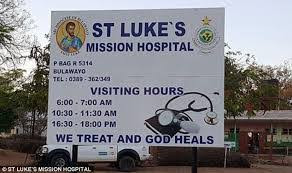
NINE Russian health experts are in Zimbabwe to share their expertise in managing neonatal and obstetric complications in a move aimed at improving maternal healthcare services in the country.
This was revealed by Health and Child Care minister Douglas Mombeshora during a workshop held in the capital on Tuesday, where he emphasised on the government’s ongoing efforts to tackle neonatal and perinatal mortality rates.
Mombeshora said the partnership with Russia is seen as a crucial step toward reducing maternal mortality to below 70 per 100 000 live births and neonatal mortality to 12 per 1 000 live births.
“Our collective aim is to reduce neonatal and perinatal mortality rates,” he said.
“The Ministry of Health and Child Care has prioritised enhancing reproductive, maternal, newborn, and adolescent health and nutrition services.
“Our interventions focus on ensuring that healthcare is accessible, affordable and of high quality for all citizens.”
The maternal mortality ratio is estimated at 363 per 100 000 live births; and under-five mortality at 39.8 deaths per 1 000 live births, according to available statistics.
Neonatal mortality rate has remained static at 31 deaths per 1 000 live births.
- Mavhunga puts DeMbare into Chibuku quarterfinals
- Bulls to charge into Zimbabwe gold stocks
- Ndiraya concerned as goals dry up
- Letters: How solar power is transforming African farms
Keep Reading
Mombeshora, however, said the government was committed to reducing maternal mortality rates, with increased antenatal care coverage and more women opting for institutional deliveries.
“This is evidenced by the high antenatal coverage and increased institutional deliveries. However, we recognise that we are still falling short of meeting the SDG targets,” he said.
“We deeply appreciate Russia’s support in our efforts to mitigate maternal and infant mortality.
“Their commitment to sharing best practices and enhancing the capabilities of our healthcare workers is invaluable.”
One of Zimbabwe’s top obstetricians, Taazada Nhemachena, expressed optimism about the partnership.
“I am confident that this initiative will reduce mortality rates and improve healthcare outcomes for our patients, enhancing maternal and neonatal health in Zimbabwe,” Nhemachena said.
Meanwhile, the ministry also reviewed progress in the fight against HIV and Aids among children and adolescents.
Health and Child Care permanent secretary Aspect Maunganidze said 2,4 million children, adolescents and young adults living with HIV (CAYALHIV ) globally face challenges in accessing healthcare services.
He said an estimated 55% of adolescents living with HIV in Zimbabwe were on antiretroviral therapy (ART), compared to 76% of adults
Only 48% of adolescents on ART achieved viral suppression, in contrast to 79% of adults, he said.
“Adolescents continue to experience the highest rates of treatment attrition, failure, morbidity, and mortality compared to both children and adults,” the government bureaucrat said.
“This gap is further exacerbated by mental health challenges, such as depression and anxiety, which significantly hinder treatment adherence and contribute to elevated mortality rates.”
He emphasised the need for targeted services for CAYALHIV through age-appropriate responses among other interventions.










